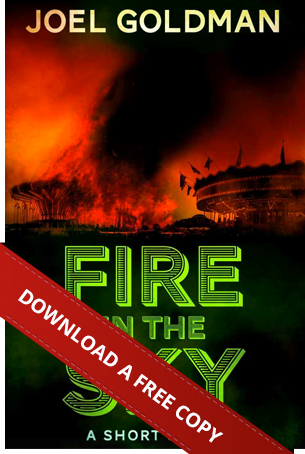Evaluating a book by writing a book review simply comes down to sharing your personal thoughts about the work once you’ve read it. But writing a helpful and authoritative book review requires more than your subjective opinions. You need to include some objective facts about it also. The purpose of a review is typically focused on helping people decide whether they want to buy and read the book.
People often worry about “the right length” when writing their reviews. The truth is that length of a great book review can vary widely. Some are short – 50 to 75 words – that describe the plot and the writing quality in two or three sentences. Others can reach the length of 1,000 words or longer. Most book reviews fall somewhere in between these two extremes. Now that we’ve cleared up any anxiety about length, what should you actually include in your review?
How to Write a Great Book Review
Whether you liked the book or not, a good review includes a few typical features:
Opening statement. An opening statement or introductory paragraph (for a longer review) should describe a bit of what the book is about. Do this without spilling any surprise plot twist or letting any spoilers slip by. In other words, you want to avoid talking about things that occur from somewhere around the middle of the story to the end. If writing about a book in a series, let readers know if they’d need to read previous books in the series to fully understand and connect with this one.
Share what you liked. Think about how you felt when reading the story and the way the author told it. You might want to talk about your favorite character, whether the plot kept you guessing, and if it made you laugh or cry. If the author set up certain scenes very well, you could talk about that too. Was the book edited well? Then make sure you share it.
Depending on the genre, you’ll want to include genre-specific things that you liked. For instance, if you read a romance novel, talk about the elements of the love scenes that you liked in particular. If you read a crime novel, share your thoughts about how the author treated a particular criminal character or event. Even if you didn’t like a particular book overall, it’s important to first share what you did like about it.
Talk about what you didn’t like. Maybe you loved the book overall, but it had several typos, missed words, etc. This just comes down to bad editing and if the story is gripping, sometimes readers can overlook these flaws. Even so, you might want to share examples of some of the editing bloopers in your review.
Maybe the main character wasn’t someone that you could connect with on an emotional level or perhaps the story had too much sex or not enough. Perhaps the violence in a thriller novel didn’t seem real to you – or it was too real and frightened you. These things come down to personal taste, but include them anyway because your assessment may help others decide whether they want to read it or not.
Closing statement. Round out your review by summarizing your perceptions and reactions to the book. Include the type of person who might enjoy the book. For instance, if you reviewed my latest book, Chasing the Dead, you’d say that people who enjoy hard-hitting crime thrillers with a legal twist would enjoy the story. People who like sci-fi fantasy would enjoy A Game of Thrones by George R.R. Martin. Young adult readers might like City of Heavenly Fire by Cassandra Clare.
You can also compare the book or series to those from other authors to give readers an idea about the style. Although I haven’t read them, I’ve heard that Cassandra Clare’s Mortal Instrument Series compare to those of Richelle Mead or Jennifer L. Armentrout. People sometimes compare my books to those of Lee Child or Michael Connelly. This is helpful for fans of Child or Connelly who are looking for a new author. Knowing that my books compare to them can help them decide whether to give my series a try.
The trick is to include a nice balance of your personal subjective opinion and facts about the story and author in your review. Doing this will make your review helpful to the widest sampling of readers and you’ll be well on your way to becoming a sought after, authoritative book reviewer.
Have you ever written a book review? Do you write them on your blog, or do your prefer to share your reviews on sites like Goodreads or Amazon?
Photo credit: talentsquare [dot] com












Great ideas, Joel. And remember, even if you have nothing new to add to the discussion of a novel, an author appreciates seeing that another person enjoyed their book . We know you’re not writers, you’re readers, and the review doesn’t need to be a literary masterpiece.
You’re right, Kim. It’s great to have the honest thoughts and opinions of readers. I’m so glad you mentioned that we understand that most book reviewers aren’t professional writers. We don’t care. We just want your thoughts on the work out there so we can see it. I read all my book reviews and truly appreciate them.
Me too. They say not to engage with readers but I thank each one. I’ve garnered my best beta readers from my review list.
Ha! I always engage with my readers. I hadn’t heard of any sort of standard saying authors should not. Readers want to feel connected to the authors who write their favorite books. Don’t you think?
I think so but then I get great reviews from grateful reviewers. Maybe they’re talking about bad reviews when they say don’t engage or reply. I don’t know but half the fun is thanking each reviewer.
I wrote a blog on reviewing once but I do not think you should talk about what you don’t like. Just concentrate on what you DO like. Do you review fiction?
I haven’t lately. I just don’t have the time right now, Kim. I’m busy with several new projects. Maybe when things slow down a bit, I will.